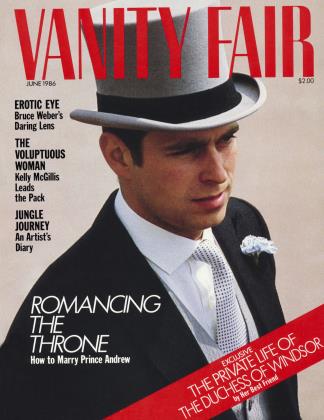Sign In to Your Account
Subscribers have complete access to the archive.
Sign In Not a Subscriber?Join NowTHEATER
Loot Points
A look at Joe Ortons legacy
I first read Joe Orton's hilarious play Loot when I was sixteen. The biography on the back of my Evergreen paperback said: "His first play to be staged was Entertaining Mr. Sloane, which won the London Critics Variety Award as best play of 1964. Loot won the Evening Standard Drama Award as the best play of 1966. Mr. Orton was murdered in 1967."
That last sentence is quite an attention grabber.
Orton was hammered to death by his lover of many years, Kenneth Halliwell (who then committed suicide). The English playwright was dead at thirtyfour, leaving behind three full-length plays {Sloane, Loot, and the posthumously produced What the Butler Saw) and a handful of oneacters. His work had not been produced that frequently in this country until five years ago when John Tillinger directed Entertaining Mr. Sloane Off Broadway. This season the same director brought a merry production of Loot (with Joseph Maher, Charles Keating, Zoe Wanamaker, and, my favorite in a good cast, Zeljko Ivanek) to Broadway.
Critics sometimes liken my work to Orton's, and I am flattered indeed. Reading his biography (John Lahr's superb Prick Up Your Ears, recently reissued), I discover that Orton's birthday was January 1; mine is January 2. Given his end, however, I am eager to limit the number of similarities between us.
When I was young, I found reading Orton's farces quite liberating. I usually have a bizarrely low tolerance for conventional farce—Feydeau, for instance, amuses me for about an act, but then I want to go home because none of it matters. I need some connection with real life in theater or I get restless. Not that I want realism—if a play is set in a realistic living room or kitchen, with characters making small talk about magazine subscriptions or brands of mayonnaise, I become inwardly hysterical and have fantasies of crying out to the stage, "Stop this at once! My tolerance for boredom is low!" Orton's farces, of course, are not realistic, and their structure is more anarchic than most—which makes them less predictable. And to me they do "matter" because they are written out of a genuine response to life: namely, Orton's profoundly low opinion of humanity.
Joe Orton saw something kind of awful about life, but seemed to take a giddy delight in detailing the monstrous comedy that he saw.
In college I unreasonably demanded that all literature reflect the existential blackness that I saw. (I recall writing "Oh, shut up" in the margin of Wordsworth's "Lines Composed a Few Miles Above Tintem Abbey," so enraged was I that Wordsworth wasn't Beckett—not a very fair demand of Wordsworth, but then it was the sixties, and students made lots of demands.) But unlike Beckett's austerity and despair, Orton's darkness came out in this tremendous burst of energy; he saw something kind of awful about life, but seemed to take a giddy delight in detailing the monstrous comedy that he saw. He enjoyed watching his comic monsters inherit the earth. The two characters in Loot who get the most out of life are the two most immoral and tyrannical— Fay, the nurse who blithely murders her husbands and patients for their money, and Truscott, the police inspector who revels in his power and doesn't give a fig for justice.
Orton was raised Catholic (as I was), and little comic takes on his religion are casually scattered throughout his plays. In Loot, Fay condemns Hal's familyplanning equipment, adding, "A Papal dispensation is needed to dust his room." Until reading Orton, I had believed that as a playwright you were expected to present all your characters as white Protestants, unless you were writing Othello or something, in which case one of them could be a Moor. Orton's (and Fellini's) example convinced me that references to one's religious background could work—indeed were a logical extension of the old adage "Write about what you know."
One wonders how Orton's work would have developed had he lived. An early play, The Ruffian on the Stair, has some "felt" emotion in the character of Wilson, who is in despair over the death of the brother he loved. It being Orton, the love is indeed incestuous, but it isn't just grotesque—it's strangely moving. Another direction could have been in the frighteningly tough-minded style of his diaries. (I know only the excerpts in the Lahr book, but more will be published in England this fall.) "Your sense of detachment is terrifying, lad" is said to Hal in Loot, who has been handing his dead mother's false teeth and glass eye around "like nuts at Christmas." One could say the same of Orton, who brought his own mother's false teeth, fresh from her funeral, to the actors in Loot to give them a sense of what they should be playing. His diary descriptions of anonymous sex in London lavatories are pretty shocking, but they are also fascinating, and not just pruriently—Orton is so detached and blankly accepting of human lust that you feel you're learning something important about the human character (though if you asked what exactly, I'd be hard-pressed for an answer).
Aunt Mathilde probably wouldn't like the diaries, but she might like Loot. For all its dark underbelly, it's rather a jolly play.
Christopher Durang
 View Full Issue
View Full Issue






Subscribers have complete access to the archive.
Sign In Not a Subscriber?Join Now